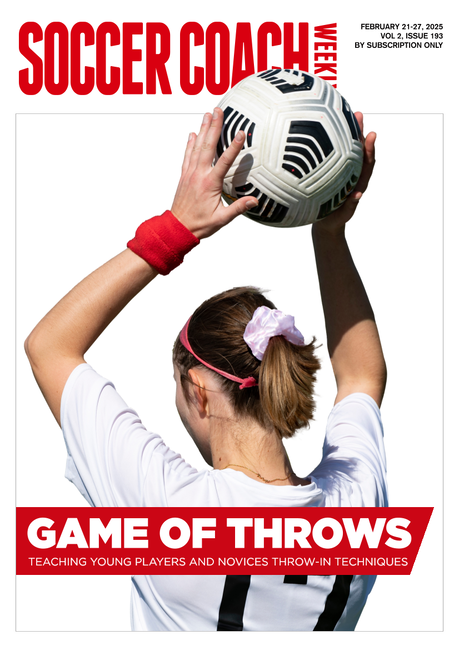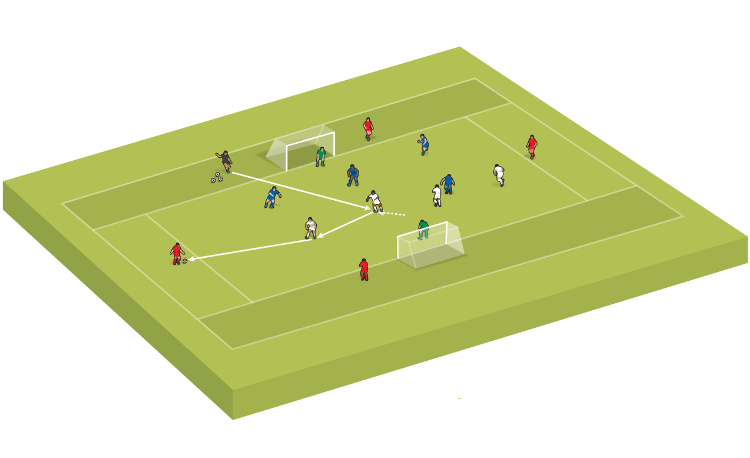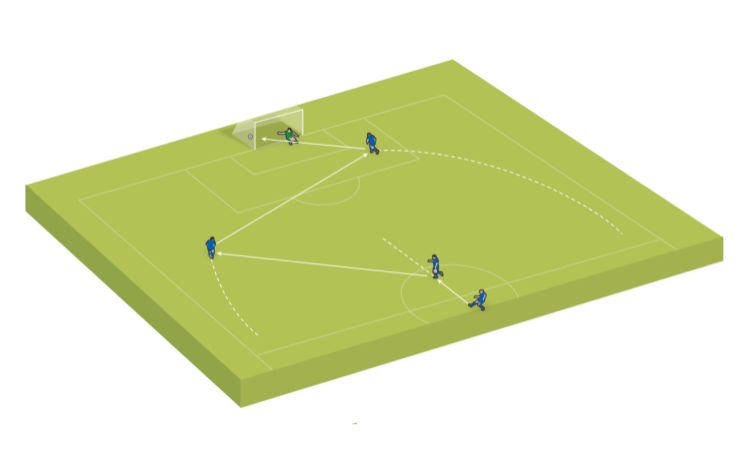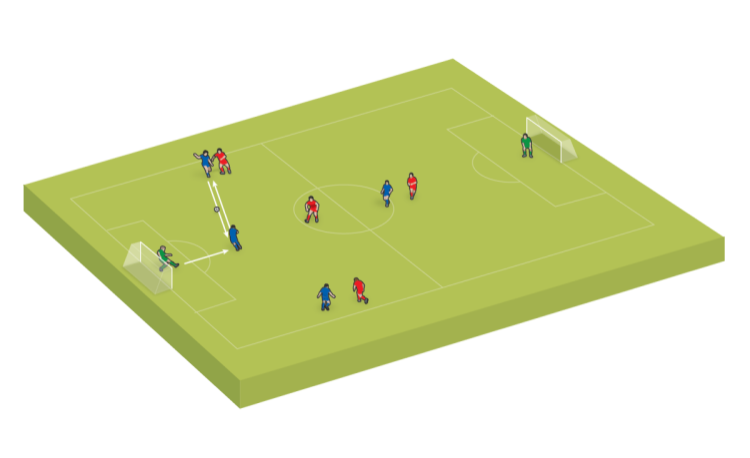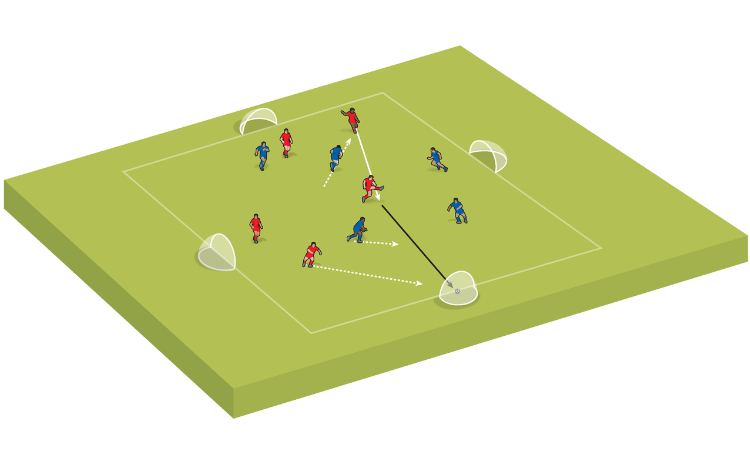Normalise the nerves
BEN KAMARA ADAMS on the lessons learned from going blank in an assessment
I recently delivered on my Uefa B assessment, on a course run by the Football Association of Wales (FAW).
As well as online coursework, you deliver three practices and get marked in 30 criteria, including whether a suitable session plan has been submitted and if you have set appropriate challenges and conditions on players.
The three practices you have to deliver are themed and you get given a selected topic – I had defending the overload, breaking lines and switching play. These practices work as follows:
• A general practice (without positions where everyone works on the principles)
• A specific practice (match realistic with positions, less ball-rolling time)
• One specific to a small-sided game, or one general to a small sided game
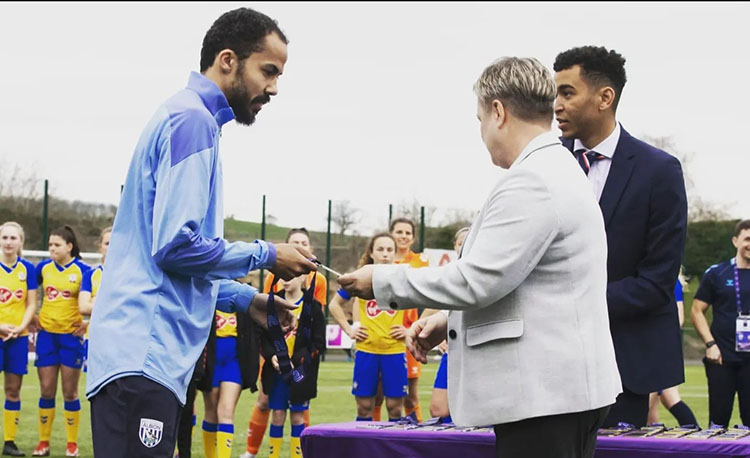
The 30 criteria are marked using a red-amber-green system, where red is failure, amber is a pass, and a green is the target.
You get three opportunities to turn any reds into ambers. I had four, in tactical information, technical information, pitch geography and what ifs (as in, ‘what if our topic is switch of play and our winger has cut inside to attack the far post?’).
I had planned a 20-minute session specifically to address these. When I arrived I got asked to do 12 minutes. My head went. How do I turn my reds into ambers now?
In hindsight, I shouldn’t have been so tightly attached to my plan. In real life, plans can and do change on the spot, due to numbers, space and so on.
But the fear of not passing my second assessment made me extremely nervous. I forgot every single coaching point I had planned for.
"I had planned a 20-minute session. I got asked to do 12. My head went..."
I did coach the session, of course, but I was extremely self conscious.
Afterwards, I was told my structure was really good and it helped get my principles over, and that I’m really good at coaching the restarts but when we beat the first line of pressure or are in finishing phases, I had no coaching points.
So the build up and getting the ball from A to B was really good, but nothing from B to goal. All good feedback.
But I couldn’t get over the fact I had planned to walk through some third man, up-under-through patterns and some key details on individual player movement and my mind went blank.
I couldn’t get over the fact that without some of the tutor’s prompts and questions I’d have not remembered anything and would be delivering a Level 1 practice at best.
Expectations did it to me – “I will have no reds, I’m B licence level, I need to show that, I can’t be making mistakes”. Everything we tell players not to think like.
It is important as a coach that you have no expectations or demands of yourself – you’re just a human, constantly learning and expressing themselves, vulnerable to mistakes, emotions and, yes, forgetfulness.
Everyone pretends they’re not nervous. But it’s natural and everybody feels the nerves when observed.
Allow yourself to feel them, don’t expect anything from yourself, be open to freestyling and getting the universe’s assistance. And most importantly have fun.
Update: I now only have one red – the ‘what ifs’. Going into the last assessment, I will not take it so seriously. I will have fun, be less rigid and won’t put any pressure on myself.
Related Files
Newsletter Sign Up
Coaches Testimonials

Gerald Kearney, Downtown Las Vegas Soccer Club

Paul Butler, Florida, USA

Rick Shields, Springboro, USA

Tony Green, Pierrefonds Titans, Quebec, Canada
Subscribe Today
Discover the simple way to become a more effective, more successful soccer coach
In a recent survey 89% of subscribers said Soccer Coach Weekly makes them more confident, 91% said Soccer Coach Weekly makes them a more effective coach and 93% said Soccer Coach Weekly makes them more inspired.
*includes 3 coaching manuals
Get Weekly Inspiration
All the latest techniques and approaches
Soccer Coach Weekly offers proven and easy to use soccer drills, coaching sessions, practice plans, small-sided games, warm-ups, training tips and advice.
We've been at the cutting edge of soccer coaching since we launched in 2007, creating resources for the grassroots youth coach, following best practice from around the world and insights from the professional game.

